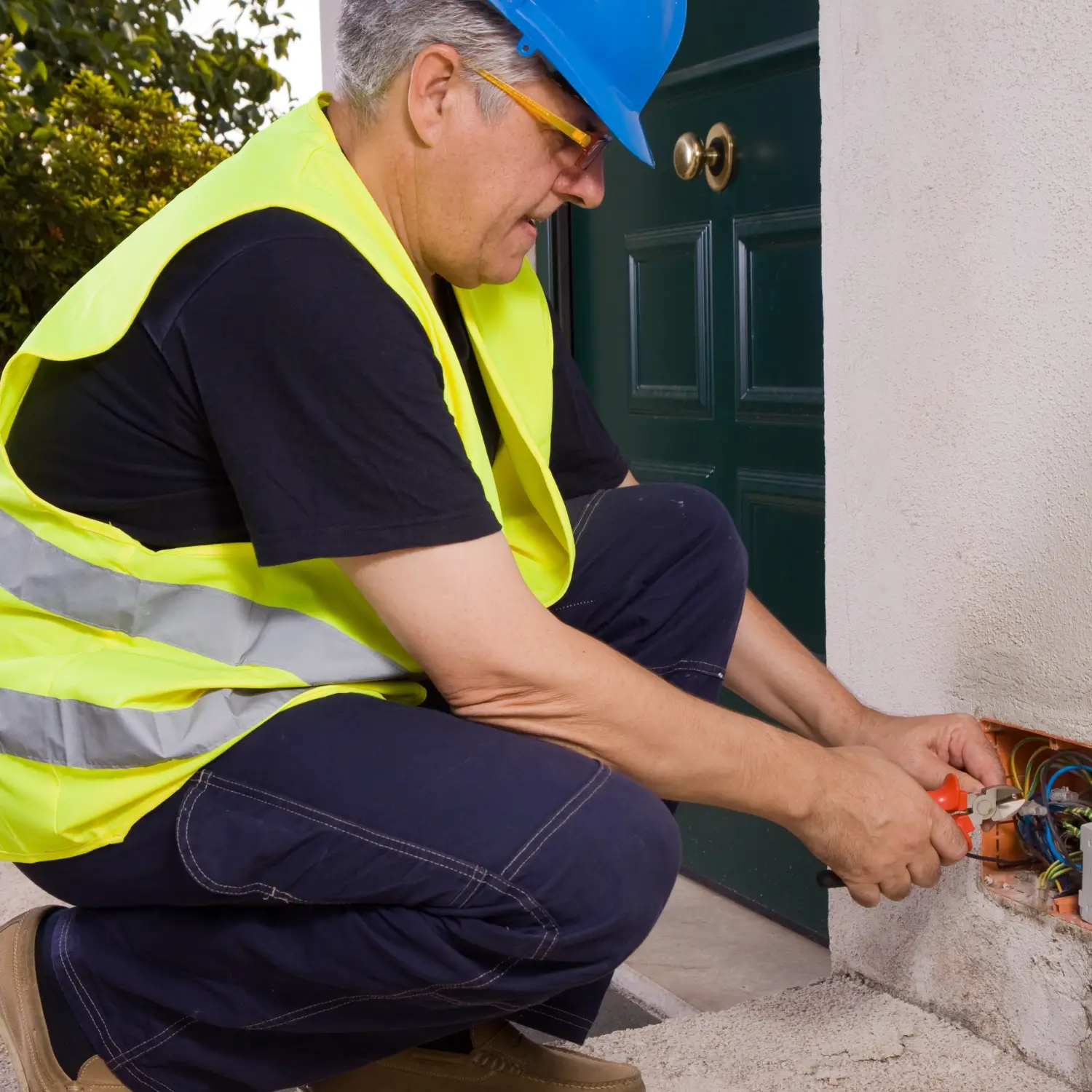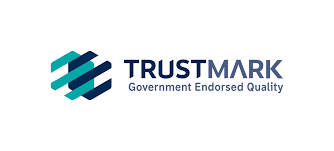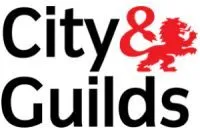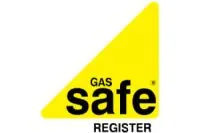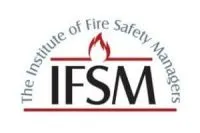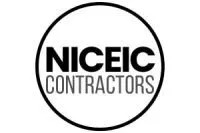Powering Safety, Ensuring Compliance
Secure your same-day electrical certificate with London Safety Certificate today and experience unparalleled professionalism and reliability!
ONLY £98.99
PER HOUR
* All inclusive (No hidden Cost)
* Limited time offer upto 2 weeks from now

Studio
Property
£75
*All inclusive (No hidden Cost)
*For one fuse board or consumer unit and any additional fuse board would be £89.99
1-3 Bedrooms Property
£98.99
*All inclusive (No hidden Cost)
*For one fuse board or consumer unit and any additional fuse board would be £89.99
4 Bedrooms
Property
£109.99
*All inclusive (No hidden Cost)
*For one fuse board or consumer unit and any additional fuse board would be £89.99
5-6 Bedrooms Property
£149.99
*All inclusive (No hidden Cost)
*For one fuse board or consumer unit and any additional fuse board would be £89.99
Comprehensive Electrical Certification Services in London for Safety and Compliance
Whether you’re a landlord or homeowner, obtaining an Electrical Installation Certificate (EIC), Electrical Installation Condition Report (EICR), or a Minor Works Certificate is significant. These documents certify that your property’s electrical systems meet the BS 7671 regulation, enhancing safety and legal compliance. The EICR, mandatory every five to ten years, depending on your property type, is critical in evaluating existing setups and safeguarding inhabitants. We’ll clarify how these certifications can add value to your property and maintain continuous safety compliance.
London Safety Certificate specialises in providing extensive electrical certificates, essential for ensuring the safety and compliance of electrical installations within any residential or commercial property in London. With over a decade of industry experience, our fully qualified and NICEIC-registered engineers are dedicated to delivering top-quality service. We offer the convenience of same-day electrical certificates, ensuring that our clients meet legal requirements swiftly and efficiently. Our commitment to reliability, professionalism, and accredited expertise, combined with competitive pricing and transparent costs, has earned us a reputation for excellence, as reflected in our 5-star customer reviews.

HOW CAN WE HELP
London Safety Certificate specialises in providing thorough electrical certificates, ensuring that all electrical systems and installations meet the stringent standards required for safety and compliance. Serving the London area, our team of accredited professionals is dedicated to delivering reliable and precise assessments tailored to meet each client’s unique needs. Whether you are a homeowner needing to verify the safety of your electrical installations or a business seeking to adhere to legal requirements, London Safety Certificate offers the expertise to facilitate a seamless certification process, reinforcing our commitment to professionalism and the highest service standards.

WHY US
Choosing the London Safety Certificate for your electrical certification needs guarantees you are partnering with a pinnacle of professionalism and reliability. With over 12 years of industry experience, our fully qualified and NICEIC-registered engineers specialise in providing same-day electrical certificates, catering efficiently to urgent requirements. We pride ourselves on our transparent pricing and exceptional customer satisfaction, reflected in our 5-star reviews. London Safety Certificate adheres to the core values of reliability, professionalism, and accreditation, making us a trusted provider in London for all your electrical safety needs. Choose us to ensure that your electrical certifications are handled swiftly and competently, without hidden fees.
What is an Electrical Certificate?
An Electrical Certificate verifies that electrical installations in properties meet the required safety standards set by UK regulations.
Landlords, homeowners, and commercial property managers must obtain an Electrical Safety Certificate to guarantee compliance with these standards.
It’s essential to differentiate between an Electrical Installation Condition Report (EICR) and an Electrical Installation Certificate, as each serves specific purposes during property inspections and legal compliance.
Who Needs an Electrical Safety Certificate in the UK?
Understanding the requirements for an Electrical Safety Certificate is crucial for property owners and landlords across the UK. This certification process is critical to maintaining electrical safety and adhering to specific legal obligations that guarantee the protection of tenants and properties.
Here’s a clear breakdown of who specifically needs this certificate:

Landlords
Under the Electrical Safety Standards in the Private Rented Sector Regulations 2020, landlords must have their properties inspected and tested by a qualified person at least every five years. This guarantees ongoing compliance with safety standards and landlord responsibilities.

Property Managers
Those managing properties on behalf of landlords must also guarantee that electrical inspections are conducted according to the stipulated intervals and maintain records of each inspection.

Home Sellers
While not legally required, obtaining an Electrical Safety Certificate can enhance a property’s marketability, providing potential buyers with assurance regarding the electrical system’s condition.

Business Owners
Commercial properties must also adhere to stringent electrical safety regulations to protect employees, customers, and the business from electrical hazards.
For each group, staying informed about tenant obligations and guaranteeing regular home inspections are crucial steps in the certification process.
Difference Between EICR and Electrical Installation Certificate (EIC)
We often encounter confusion when distinguishing between an Electrical Installation Condition Report (EICR) and an Electrical Installation Certificate, which is essential in guaranteeing electrical safety compliance.
Let’s clarify these significant documents to enhance your understanding of electrical compliance requirements.
The Electrical Installation Certificate is issued following installing new electrical systems or significant alterations to existing systems. It confirms that the installation complies with current safety standards and has been tested to meet strict regulatory requirements. The certificate validity is vital; it is a definitive record that the installation was compliant at completion.
Conversely, an EICR is conducted on existing electrical installations to assess their condition and ascertain they’re safe for continued use. This inspection checks for compliance with the prevailing electrical standards and identifies potential safety risks.
The EICR’s differences from the Installation Certificate include its role in ongoing maintenance rather than initial verification. The type of premises and usage determine the inspection frequency for EICRs, but it typically occurs every five years for commercial properties and domestic residences.
Understanding these distinctions guarantees that electrical systems are compliant at installation and maintained safely throughout their operational life.
Importance of Electrical Certificates
As landlords, we must recognise the critical role that electrical certificates play in property management.
Adhering to legal mandates for electrical checks aligns with statutory compliance and mitigates potential liabilities.
Ensuring tenant safety through regular inspections is paramount, as it directly impacts the reliability of electrical systems and the overall safety of the dwelling.
Book nowWhy Landlords Need Electrical Testing
Electrical safety is a critical responsibility of landlords, as maintaining up-to-date electrical certificates guarantees compliance with legal standards and safeguards tenants.
As experts in property management, we recognise that regular electrical testing is paramount. Here’s why:
Legal Requirements for Electrical Check
Understanding the legal requirements for electrical checks is vital for landlords to secure compliance and safety. These mandates are governed by stringent compliance standards, guaranteeing that all electrical installations meet the latest safety protocols.
The certification processes involve a detailed assessment by certified professionals who evaluate the electrical systems against current regulatory standards. Local laws dictate the inspection frequency, but regulatory updates typically require periodic checks at intervals specified.
These inspections aren’t merely procedural but serve as significant audits to identify potential hazards and promptly enforce the necessary corrective actions. Landlords must stay abreast of these regulatory updates to ensure their properties comply with evolving standards.
Moreover, adherence to these legal frameworks not only enhances the safety of the occupants but also shields landlords from potential legal liabilities. Landlords contribute to a broader commitment to public safety and property integrity by engaging in these mandated certification processes.
Consequently, we need to understand and implement these regulations meticulously, guaranteeing that all electrical systems aren’t only efficient and rigorously safe.
Book nowEnsuring Tenant Safety With Regular Inspections
While legal requirements for electrical checks guarantee compliance and contribute to the safety framework, the importance of regular inspections goes beyond mere adherence to laws. We recognise that diligent maintenance and systematic evaluations are pivotal in mitigating risks associated with electrical hazards. Here’s why:
Enhanced Tenant Awareness
Regular inspections serve as an educational touchpoint for tenants, fostering an understanding of potential electrical hazards and the necessary safety measures to mitigate them.
Optimised Inspection Frequency
Strategically timed compliance checks ensure continuous safety, catching and rectifying faults before they escalate into serious issues. This proactive approach minimises downtime and enhances overall system reliability.
Systematic Identification of Electrical Hazards
Each inspection provides an opportunity to identify and address latent issues that could compromise tenant safety. This systematic scrutiny prevents the accumulation of risks and guarantees that safety measures are always up to date.
Bolstered Compliance Checks
Adhering to a strict schedule of inspections not only meets but often exceeds legal requirements, setting a higher standard for safety and reliability in electrical systems.
We’re committed to upholding the highest electrical safety standards, guaranteeing that our practices not only meet but anticipate the needs of our tenants.
Regular electrical inspections are a cornerstone of our commitment to safety and compliance.
Types of Electrical Certificates in the UK
In the UK, several key types of electrical certificates are recognised as essential for ensuring compliance and safety in electrical installations.
These include the Electrical Installation Certificate (EIC), which confirms that new installations or alterations meet the BS 7671 standards; the Electrical Installation Condition Report (EICR), required for inspecting and reporting on the condition of existing electrical installations; and the Minor Works Certificate, used for smaller electrical works that don’t extend or modify existing circuits considerably.
Each certificate serves a specific regulatory purpose, ensuring all electrical work adheres to strict safety protocols.
Book nowElectrical Installation Certificate (EIC)
Before proceeding with an electrical installation in the UK, it’s essential to understand the role of the Electrical Installation Certificate (EIC). This certificate is a significant document that confirms that the installation meets the rigorous requirements of electrical safety and compliance regulations.
Here are the key aspects of the EIC:

Installation Standards
The EIC guarantees that the electrical installation adheres to the UK national standard, BS 7671 (Requirements for Electrical Installations). This compliance is crucial not only for safety but also for the efficiency and reliability of the electrical system.

Testing
Procedures
It documents the results of thorough testing carried out on the electrical installation. These tests are fundamental to confirm that every system component functions effectively and safely.

Compliance Regulations
The certificate formally declares that the installation has been executed according to all current building and wiring regulations, safeguarding against potential legal and safety issues.

Certificate
Validity
The validity of the EIC indicates the integrity of the electrical installation at the time of inspection. Property owners must maintain this certificate, as it’s required for future referencing, especially during property transactions or re-inspections.
Understanding and obtaining the EIC is paramount for anyone involved in electrical work, as it encapsulates the essence of safety and compliance in electrical installations.
Electrical Installation Condition Report (EICR)
Switching from the Electrical Installation Certificate, we must examine the Electrical Installation Condition Report (EICR), another crucial document in UK electrical certifications. The EICR is a thorough assessment that scrutinises the safety and integrity of an existing electrical installation. It identifies any deficiencies against the national safety standard for electrical installations.
Qualified EICR providers must conduct inspections. These providers evaluate the system to verify that it is hazard-free and complies with up-to-date safety regulations. The frequency of these inspections varies based on the type of premises. Still, they are essential for maintaining safety and compliance.
The benefits of obtaining an EICR are multifaceted. They enhance safety, verify compliance, and potentially lower insurance premiums due to demonstrated diligence in maintaining electrical systems. The validity of an EICR is contingent upon the nature of the installation and its usage, requiring periodic reassessment to maintain its integrity.
Here’s a glance at key aspects of the EICR:
Understanding these elements guarantees you’re well-informed about the critical role and requirements of the EICR in maintaining electrical safety standards.
Book NowMinor Works Certificate
After exploring the Electrical Installation Condition Report, we now focus on the Minor Works Certificate, an essential component within the spectrum of UK electrical certifications. This document is vital for certifying alterations, additions, or replacements in existing electrical installations that don’t extend to new circuits.
Here’s what you need to know about the Minor Works Certificate:
Scope of Work
It covers minor electrical works like additional sockets or light fittings, not involving new circuitry. It certifies that these modifications comply with the existing safety regulations and standards.
Compliance Standards
The certificate confirms that the minor works meet the requirements of BS 7671—Requirements for Electrical Installations (IET Wiring Regulations).
Safety Regulations
These regulations guarantee that even the smallest changes adhere to strict safety protocols, minimising any risk of electrical hazards.
Inspection Procedures
Issuing a Minor Works Certificate requires a thorough inspection and testing of the modified electrical installations to verify ongoing compliance and safety.
We understand the importance of maintaining rigorous standards in even seemingly minor modifications.
Confirming every component of an electrical system meets these stringent requirements is vital for safety and compliance. The Minor Works Certificate ensures that all minor installations are executed precisely and carefully.
Electrical installation condition report certificate
We’ll now explore the Electrical Installation Condition Report (EICR) certificate, beginning with the acquisition process in the UK.
This certificate thoroughly assesses the safety of electrical installations within your property, detailing any defects or deviations from the wiring standards.
We’ll also discuss the typical costs of obtaining an EICR, ensuring you’re well-informed before initiating the process.
Book nowHow do I get an electrical certificate in the UK?
Obtaining an Electrical Installation Condition Report (EICR) in the UK requires engaging a qualified electrician registered with a competent person scheme. This certification guarantees that your electrical systems are up to standard and safe for use.
Let’s explore the steps to obtain this certification:
Choose a Qualified Electrician
Verify the electrician is registered with one of the UK’s government-approved schemes. This assures they meet the stringent requirements for testing electrical installations.
Book NowSchedule
an
Inspection
The electrician will thoroughly inspect your electrical systems. This includes checking the safety of wiring and devices to comply with the UK national standard, BS 7671.
Review
the
Report
After the inspection, you’ll receive an EICR that details any defects or deviations from the compliance standards. It is important to review this document carefully to understand any necessary remedial work.
Book NowAddress Compliance Issues
If the report identifies issues, rectifying them promptly is imperative to meet safety and compliance standards.
Book NowThis process not only guarantees safety but also mitigates potential risks.
What EICR Covers in Your Property
Having outlined how to obtain an Electrical Installation Condition Report (EICR), let’s examine what this report encompasses within your property. The EICR is a detailed assessment essential for guaranteeing that all electrical systems and circuits meet stringent safety measures and are up to current standards.
The inspection covers several key areas. First, it evaluates the adequacy of earthing and bonding. Then, technicians scrutinise the condition and suitability of switchgear and control gear.
Another significant focus is the type and condition of the wiring system throughout the property, including checking for any wear and tear that could pose safety risks.
Furthermore, the EICR checks for residual current devices (RCDs) for sockets that could be used to plug in outdoor electrical equipment. It also assesses the presence and condition of adequate identification and notices necessary to guarantee safe operation and maintenance of electrical installations.
For landlords, meeting these EICR requirements isn’t just a regulatory compliance issue but a vital duty to guarantee tenant safety. The report identifies any overloaded electrical circuits or equipment, highlights potential electric shock risks and fire hazards, and outlines any defective electrical work.
Each aspect of the inspection aims to prevent safety issues and guarantee that the property’s electrical systems function safely and efficiently.
Book nowHow much does EICR cost?
The cost of an Electrical Installation Condition Report (EICR) can vary considerably based on several factors, including the size and complexity of the property’s electrical systems, location, and the technician’s experience conducting the assessment. Understanding these EICR pricing factors is vital for property owners and managers seeking to guarantee compliance and safety without unexpected financial burdens.
Here are the key elements that influence EICR costs:

Property
Size
Larger properties or those with multiple occupancy units typically require more extensive inspection efforts, which can elevate costs.

System Complexity
Properties with intricate electrical systems, older installations, or numerous modifications may demand more detailed and time-consuming assessments.

Regional Variations
Comparing EICR costs across different regions can reveal significant disparities. For instance, major urban centres often exhibit higher pricing due to increased overheads and demand.

Technician Expertise
Seasoned professionals usually command higher fees. However, their depth of knowledge can provide more accurate findings and potentially avert future complications.
Average EICR costs typically range broadly, and engaging in the early EICR quotes process is beneficial.
This approach allows for budget planning and guarantees the selection of a qualified electrician whose expertise aligns with your property’s specific needs.
Electrical Inspection and Testing Process
We’ll begin by outlining how electrical inspections are conducted and the specific procedures to ensure compliance with current safety standards.
During an electrical installation condition report, we’ll examine what you can expect, including the range of tests and checks performed to assess the integrity of your electrical systems.
Additionally, we’ll clarify whether you need an electrical safety certificate to sell your house and detail the legal and safety implications.
Book nowHow Electrical Inspection Works
An electrical inspection‘s primary objective is to confirm that all electrical systems and components meet the required safety standards prescribed by law. This process is critical to guaranteeing both operational reliability and user safety.
We meticulously follow a structured procedure to identify discrepancies that could lead to potential hazards.
Here’s an overview of our inspection process:
Review of Electrical Inspection Checklist
We begin by examining the thorough checklist, which covers all system aspects, from wiring safety to device functionality.
Adherence to Safety Compliance Standards
Each component is tested against stringent safety compliance standards to confirm that it does not deviate from accepted protocols.
Observation of Inspection Frequency Guidelines
Regular inspections are scheduled according to established guidelines, which dictate the frequency, scope, and depth of each review, tailored to the system’s complexity and usage intensity.
Identification of Common Inspection Issues
Our skilled inspectors pinpoint typical problems such as outdated wiring, overloaded circuits, and improper grounding.
Throughout the certification process, we provide a detailed report that includes all findings, recommendations for corrective actions, and a timeline for reevaluation.
This meticulous approach is crucial for maintaining system integrity and safeguarding all stakeholders.
What to Expect During a Condition Report
During your electrical inspection and testing, expect our team to conduct a thorough condition report that assesses every aspect of your system’s safety and efficiency. Our certified electricians will systematically evaluate the installation for compliance with the latest electrical safety standards.
This inspection involves detailed wiring, protection devices, and connectivity checks to guarantee no latent hazards. We’ll scrutinise the condition of switchboards, sockets, and fixtures for deterioration or faulty configurations, common issues that might compromise safety.
Our specialists use advanced diagnostic tools to identify defects or non-compliance that could lead to potential risks. The report findings will provide an extensive overview of the system’s current state, highlighting areas needing immediate attention or suggesting preventive measures.
Tenant awareness is vital, so we guarantee our reports are clear and educational. They explain the implications of any detected anomalies and the necessary corrective actions. This enhances safety and empowers tenants with knowledge about their electrical system’s health.
Expect a detailed document assuring you of your property’s compliance with safety regulations and guiding you to maintain peak electrical efficiency. This proactive approach is fundamental in mitigating risks and guaranteeing long-term safety and functionality.
Do you need an electrical safety certificate to sell a house?
Although not universally required, obtaining an electrical safety certificate can greatly facilitate selling a house. This certificate proves the property’s adherence to safety compliance and legal obligations, adding a layer of buyer assurance that can enhance property value during house-selling negotiations.
When we consider the ramifications of presenting an electrical safety certificate, the benefits are multi-fold:
Electrical Safety Certificate Near Me
Finding a reliable provider of electrical safety certificates near us is vital for maintaining the integrity and safety of our electrical installations. The certification process involves rigorous safety inspections by qualified local electricians who are well-versed in the latest compliance standards and electrical regulations.
We must engage professionals who understand the technical requirements and possess the necessary accreditation to certify our systems. When we select a service provider, we must guarantee that they meticulously adhere to the national and local electrical codes.
These standards protect buildings from electrical hazards by confirming that all installations meet the required safety standards. Inspection typically thoroughly examines the electrical panels, wiring, fixtures, and safety devices. Any discrepancies found during these inspections are noted, and corrective actions must be taken to meet the stringent requirements set forth by the governing bodies.
The role of local electricians in this process can’t be understated. Their expertise in manoeuvring the complex landscape of electrical compliance is indispensable. They verify that every aspect of our electrical system is scrutinised and that the installation complies with all current regulations.
By leveraging their skills and knowledge, we can be confident that our electrical installations won’t only pass the safety inspections but will continue to operate safely and efficiently. Thus, we must choose a certified and experienced electrician for our safety certification needs.
This guarantees compliance and peace of mind, knowing that our electrical infrastructure is secure and compliant.
Book nowWhat Triggers an Electrical Safety Check?
We must recognise several key events that mandate an electrical safety check to guarantee compliance and safety.
If you’re witnessing frequent electrical faults, it’s likely time for a new Electrical Installation Report, especially before leasing properties to new tenants.
Similarly, completing any renovations or adding new installations triggers a thorough inspection to verify that all modifications meet the current electrical standards and regulations.
Signs You Need a New Electrical Installation Report
Recognising the signs that necessitate a new Electrical Installation Report is vital for maintaining the safety and compliance of your electrical systems.
As stewards of our electrical infrastructure, we must guarantee that all components meet current compliance standards and function safely. To guide you, here’s a precise list of triggers that should prompt a review of your electrical setup:

Aged
Infrastructure
If your installation surpasses the typical lifespan, which varies but often ranges around 25 years, initiating a thorough reassessment is prudent. Ageing systems are prone to degradation, leading to significant installation issues.

Post-Incident
Analysis
A detailed examination following any electrical incident, such as short circuits or equipment failures, must be conducted. This helps identify underlying problems that mightn’t be apparent visually.

Technological
Upgrades
Introducing new high-demand appliances or systems to an existing circuit may require an upgrade assessment to avoid overloading and potential hazards.

Regulatory
Compliance
Adherence to the latest electrical safety and compliance standards mandates regular checks. Report frequency should align with national safety codes or be more frequent depending on local regulations.
Regular reviews and maintenance tips are vital in preempting operational failures and guaranteeing ongoing safety and efficiency.
Before New Tenants Move In
As landlords prepare properties for new tenants, ensuring electrical safety is a key responsibility. Thorough electrical inspections before tenant move-in are pivotal to meeting stringent property standards and fulfilling landlord obligations. These checks are essential to ascertain that all electrical systems operate safely and efficiently, mitigating potential hazards.
The frequency of these inspections often hinges on various factors, including the property’s age, previous maintenance records, and updates to local codes. A routine inspection schedule protects tenants and preserves the property’s value, preventing costly repairs.
To aid in understanding, here’s an overview of standard practices for electrical safety before a tenant moves in:
We’re committed to meeting all compliance measures, reinforcing our dedication to safety and responsibility. By maintaining rigorous standards, we safeguard tenant welfare and property integrity, underscoring our professional commitment to excellence in property management.
After Renovations or New Installations
Following property renovations or installing new electrical systems, a thorough electrical safety check is essential. We must verify that the modified or newly installed systems adhere strictly to current electrical safety standards and regulations. This rigorous verification not only guarantees the safety of the occupants but also assures legal compliance.
To effectively navigate this significant phase, here’s what we need to focus on:
Post-renovation inspections
are fundamental to confirm that all electrical work performed during the renovation meets the prescribed safety standards. It’s important to identify any deviations that may compromise building safety.
Safety Compliance Checks
This step involves a detailed assessment of the electrical installations against the national safety codes. We must verify that every component functions correctly without posing any risk.
Installation Documentation Requirements
Proper documentation must be meticulously reviewed and kept, including schematics and installation reports. These documents are essential for future maintenance and legal compliance.
Certification Process Overview
After passing all inspections and compliance checks, obtaining an updated electrical certification is mandatory. This certificate formalises the electrical system’s integrity and compliance with renovation project regulations.
Adhering to these steps assures the electrical integrity of the property post-renovation or installation.
How often does a landlord have to do an electrical safety check?
As landlords, we must adhere to stringent electrical safety regulations to guarantee tenant safety and compliance with legal standards.
Regular electrical inspections are mandated every five years or with each change in tenancy, whichever comes first, to identify potential hazards and maintain operational integrity.
Additionally, understanding and implementing the five golden electrical safety rules can greatly enhance these efforts, providing a robust framework for preventing electrical accidents.
Book nowWhat are the five golden rules of electrical safety?
Adhering to the five golden electrical safety rules is crucial for professionals and laypersons to guarantee the utmost safety when handling electrical systems.
We must be thoroughly aware of electrical hazards and ensure that all electrical wiring practices comply with the latest standards.
Here are four essential rules:
EICR vs. Electrical Inspection Certificate
In evaluating the requirements for electrical safety, it’s essential to discern when to opt for an Electrical Installation Condition Report (EICR) versus a standard Electrical Inspection Certificate.
We’ll explore scenarios where an EICR is mandated, particularly in contexts involving higher risk or ageing installations, and instances where a simpler Electrical Inspection Certificate suffices.
Understanding the specific conditions and regulatory requirements that dictate the choice between these two assessment forms guarantees compliance and enhances safety.
book nowWhen to Choose an EICR
Deciding whether to opt for an Electrical Installation Condition Report (EICR) or a standard Electrical Inspection Certificate can greatly impact safety and compliance.
As industry professionals, we’re committed to guiding you in understanding when an EICR is the preferred choice.
Here are some key considerations:
EICR Frequency
Regulations mandate periodic EICRs to guarantee ongoing safety and compliance. The frequency varies based on the property type and usage. Generally, it ranges from every 5 years for commercial properties to 10 years for homeowners, with more frequent checks required for rental properties.
Inspection Benefits
An EICR thoroughly assesses the electrical systems, identifying current issues and potential future problems. This foresight helps in mitigating risks that could lead to severe hazards.
Landlord Obligations
Landlords are legally required to guarantee that the electrical systems in their rental properties are safe when tenants move in and are maintained in a safe condition throughout the rental period.
Tenant Rights
Tenants have the right to reside in a property that meets strict safety standards. An EICR reassures tenants that the electrical installations meet regulatory requirements, enhancing tenant safety and landlord credibility.
When You Need an Electrical Inspection Certificate
Understanding when an Electrical Inspection Certificate is necessary involves differentiating it from the EICR, which we’ve already explored. The Electrical Inspection Certificate, distinct from the EICR, is typically required following new electrical installations or major modifications to guarantee compliance with national safety standards.
We must strictly follow the testing procedures outlined in the relevant electrical codes to ascertain the installation’s integrity and functionality.
The certificate validity is essential. It typically lasts until the next required inspection, which the inspection frequency guidelines dictate. For residential properties, this might be every five years or upon change of occupancy.
Commercial and industrial settings often demand more frequent reviews depending on the operational environment and equipment used, which could increase potential risks.
We must stay updated on compliance requirements, which may vary by region and the type of premises. Non-compliance can lead to severe penalties, including fines and enforced cessation of power supply.
Consequently, rigorous inspection and certification are indispensable for guaranteeing that all electrical installations meet the specified standards, ensuring continued electrical safety and operational reliability.
Book nowLandlord Electrical Responsibilities
As landlords, we must adhere to stringent electrical regulations to guarantee tenant safety and compliance with legal standards.
The Electrical Safety Standards in the Private Rented Sector (England) Regulations 2020 mandate that we obtain an Electrical Installation Condition Report (EICR) every five years.
This report assesses the safety of electrical installations. It identifies necessary corrective actions, helping us maintain properties at the required electrical safety parameters.
What are the electrical regulations for landlords?
While traversing the complexities of property management, landlords must adhere strictly to specific electrical regulations designed to guarantee tenant safety and compliance with national standards.
These mandates serve as a framework for safeguarding tenant rights and delineating landlord obligations.
Here’s a detailed breakdown of key regulatory requirements:
Safety Compliance
Landlords are required to confirm that all electrical installations and appliances comply with the latest safety standards. This includes maintaining a residual-current device (RCD) on all circuits.
Electrical Upgrades
Any modifications or upgrades to existing electrical systems must adhere to the current wiring regulations. This confirms that any technological advancements or changes in safety standards are integrated promptly.
Inspection Frequency
Electrical installations must be inspected and tested by a qualified electrician at intervals not exceeding five years. In some jurisdictions, this frequency may be shorter based on local governance.
Documentation and Reporting
After each inspection, landlords must obtain an Electrical Installation Condition Report (EICR) and provide a copy to both new and retained tenants within 28 days of the inspection.
We’re committed to helping you navigate these regulations effectively, ensuring that your properties remain compliant and your tenants are safe.
Electrical Safety Certificates for Homeowners
As homeowners, we often overlook the critical need for periodic electrical inspections to guarantee safety and compliance with current standards.
It’s crucial to understand that, while not mandated by law, these checks can prevent potential hazards and guarantee ideal operation of our home electrical systems.
We’ll explore whether these safety certificates are necessary and the implications of neglecting such evaluations.
Do Homeowners Need Electrical Checks?
Do homeowners need to conduct electrical checks? Absolutely. As stewards of our properties, we must prioritise electrical safety and efficiency through extensive inspections. It isn’t just about compliance; it’s about safeguarding our homes from potential hazards and enhancing functionality.
Understanding homeowner responsibilities involves thoroughly exploring routine maintenance and the benefits of inspections. Here’s how we can stay proactive:
DIY Electrical Checks
Inspect your wiring, outlets, and safety switches regularly. Look for signs of wear, overheating, or damage.
Professional Inspections
Engage a certified electrician every few years to conduct meticulous checks beyond surface-level assessments.
Compliance with Codes
Verify that your electrical systems meet local and national electrical codes to avoid legal issues and guarantee safety.
Preventive Measures
Based on inspection findings, take preemptive actions to mitigate risks and prolong the lifespan of your electrical infrastructure.
These steps enhance our safety and optimise our electrical performance.
We’re not just checking boxes; we’re implementing a strategic approach to electrical management that pays dividends in safety, efficiency, and peace of mind.
Guarantee Your London Property’s Safety with Professional Electrical Certificates from London Safety Certificate
In London’s dynamic and complex environment, maintaining the safety and compliance of electrical installations is not just advisable; it’s imperative. London Safety Certificate is a beacon of professionalism in this critical field, offering expert electrical certification services that meet rigorous quality standards. Our team of fully qualified and NICEIC-registered engineers brings unparalleled expertise to each project, guaranteeing that all electrical systems are thoroughly inspected and compliant with the latest safety regulations.
The importance of obtaining an electrical certificate from a reputable and professional service cannot be overstated for property owners and managers in London. These certificates are essential for proving that your electrical systems are safe, functional, and up-to-date, a legal requirement and a critical component of building management and maintenance. London Safety Certificate specialises in providing these detailed assessments with a commitment to excellence and accuracy, giving you peace of mind that your property is safe.
Choosing the London Safety Certificate means opting for a service that values precision and professionalism. Each inspection is conducted with meticulous attention to detail, guaranteeing no aspect of your electrical systems is overlooked. This thorough approach not only enhances the safety and efficiency of your property but also helps prevent potential electrical hazards that could lead to costly repairs or, worse, emergencies. With the London Safety Certificate, you receive a detailed service that supports the longevity and safety of your property’s electrical infrastructure.













